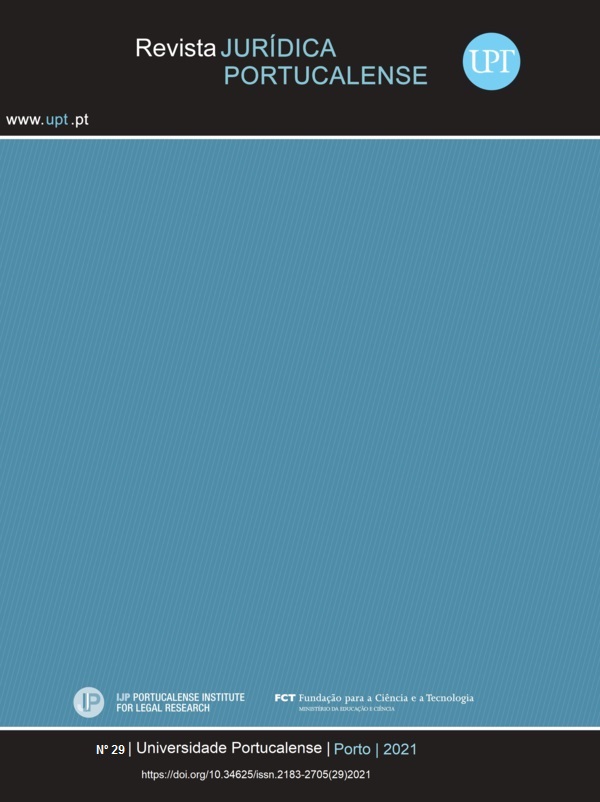A Transparência Fiscal - Relevância prática do regime em Portugal
Mots-clés :
Transparência Fiscal; Imposto sobre o Rendimento; Imputação da Matéria Coletável; Neutralidade Fiscal; Dupla Tributação.Résumé
O regime de transparência fiscal, implementado em Portugal com a reforma fiscal da década de 80 (constituiu uma das principais novidades introduzidas quer pelo Decreto-Lei n.º 442-A/88 de 30 de novembro, quer pelo Decreto-Lei n.º 442-B/88 de 30 de novembro), carateriza-se nos termos do artigo 20º do Código de IRS pela imputação aos sócios/membros, pessoas singulares ou coletivas, da matéria coletável das sociedades que assumam uma das formas previstas no artigo 6º do Código de IRC. O presente trabalho procura analisar, de forma crítica, os pressupostos legais da sua aplicação, a sua finalidade e os constrangimentos que lhe estão associados. Abordaremos algumas das suas limitações e inconsistências, nomeadamente o facto de a transparência fiscal se revelar pouco atrativa para algumas sociedades, que procuram desobrigar-se da sujeição a este regime especial, contrariando os pressupostos subjacentes à sua criação.
Références
ALMEIDA, BRUNO, Transparência Fiscal, Fisco n.º 122/123, ANO VII, novembro de 2007;
ALMEIDA, SÍLVIA, Sociedades Profissionais – Uma Questão de “Transparência”?, Jornal de Negócios, Fevereiro de 2008 (disponível em www.pwc.com/pt);
BROSTEK, M., Tax Compliance: Offshore Financial Activity Creates Enforcement Issues for IRS: Testimony Before the Committee on Finance, U. S. Senate, DIANE Publishing, Ed., United States Government Accountabilitty Office, 2009;
CORREIA, JORGE MAGALHÃES, Transparência Fiscal das Sociedades Profissionais, Fisco n.º 17, 1989;
DOURADO, ANA PAULA, Governação Fiscal Global, 2.ª ed., Almedina, Coimbra, 2018;
FAUSTINO, MANUEL, A opacidade da transparência fiscal, Gabinete de estudos da Ordem dos Técnicos Oficiais de Contas Junho de 2009, (disponível em www.ctoc.pt);
GARCÍA, CRISTINA HERNÁNDEZ, La Desaparición del régimen de transparencia fiscal – Las Sociedades Patrimoniales, Boletin económico de ICE n.º 2792, 2004, pp. 1000 a 1008 (disponível em http://dialnet.unirioja.es/servlet/ articulo?codigo=794365);
GUIMARÃES, JOAQUIM FERNANDO DA CUNHA, Transparência Fiscal, Revista electrónica INFOCONTAB n.º 30, 2008;
JACOB, ANTÓNIO A., IRS Declaração Modelo 3 e Anexos relativos a rendimentos de 2009, Edição da Apeca 45, 2010;
KRANACHER, M.-J., RILEY, R., & WELLS, J. T., Forensic Accounting and Fraud Examination, J. W. & Sons, Ed., 2010;
LEZCANO, J. M., Piercing the Corporate Veil in Latin American Jurisprudence: A comparison with the Anglo-American method, Routledge, Ed., 2015;
LIU, Y., & FENG, H., Tax Structure and Corruption: Cross-Country Evidence, Georgia State University, 2014;
MARTINS, ANTÓNIO e TABORDA, DANIEL, Taxes and Management: an Introduction (EPub), 2017, Almedina, Coimbra, 2017;
MORAIS, RUI DUARTE, Apontamentos ao IRC, Almedina, Coimbra, 2007;
MORAIS, RUI DUARTE, Sobre o IRS, Almedina, Coimbra, 2008;
NABAIS, JOSÉ CASALTA, Direito Fiscal, 11.ª ed., Almedina, Coimbra, 2019;
NEVES, NUNO AZEVEDO, Transparência Fiscal nas Sociedades de Advogados, 22 de Abril de 2010 (disponível em www.oa.pt);
ORGANISATION FOR ECONOMIC CO-OPERATION AND DEVELOPMENT (OECD), Behind the corporate veil: using corporate entities for illicit purposes, OECD Publications, 2001;
ORTS, ERIC. W.,Business Persons: A Legal Theory of the Firm. (Oxford University Press, Ed.) (1st ed.). New York, 2013;
PEREIRA, MANUEL HENRIQUE DE FREITAS, Fiscalidade, Coimbra, Almedina, 2005;
PEREIRA, RUI RIBEIRO, O Regime da Transparência Fiscal, 22 de Novembro de 2005 (artigo disponível em http://portugalfiscal.blogspot.com);
SANCHES, JOSÉ LUÍS SALDANHA, Sociedades Transparentes: alguns problemas no seu regime, Fisco n.º 17, 1990, pp. 35 e 36;
SANCHES, JOSÉ LUÍS SALDANHA, Manual de Direito Fiscal, 2ª Edição, 2002, Coimbra Editora, pp. 240 a 244;
SILVA, ANA CRISTINA, O Regime da Transparência Fiscal, Vida Económica, 2017 (disponível em www.otoc.pt).
Téléchargements
Publiée
Comment citer
Numéro
Rubrique
Licence
Authors who published in the journal agree to the following terms:
- The Authors grant the Journal the right of first publication, and other non-exclusive publishing rights, licensed under the Creative Commons Attribution License which allows the sharing of work with recognition of its initial publication in this journal.
- Authors are able to take on additional contracts separately, non-exclusive distribution of the version of the paper published in this journal (ex .: publish in an institutional repository or as a chapter in a book), with an acknowledgement of its initial publication in this journal.
- Authors are permitted and encouraged to post and distribute their work online (eg .: in institutional repositories or on their website) at any point before or during the submission process, as it can lead to productive exchanges, as well as increase the impact and the citation of published work (See The Effect of Open Access).
RJP does not apply submission, publication or any other fees of any nature. Its articles are open access, with the goal of disseminating scientific knowledge and the debate of legal topics in the area of Legal Sciences.






